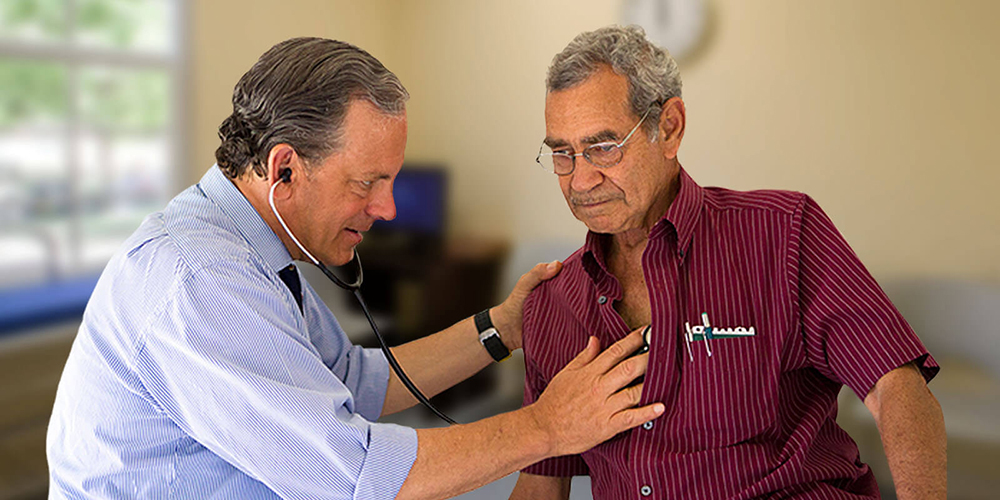There are many aspiring physicians who wonder whether becoming a doctor later in life is a realistic option. How old is too old for medical school?
While many physicians enter Doctor of Medicine (MD) programs shortly after graduating from college, you can pursue a medical degree at any point in life. In fact, student demographics have changed significantly over the years.
Keep reading to explore the details you should know as an older medical school applicant.
Is it too late to be a doctor? Not according to today’s medical students
Historically, the average age of a medical student would be considered about 22 years old. But according to the annual Matriculating Student Questionnaire from the Association of American Medical Colleges (AAMC), nearly 70 percent of students who began their medical studies in 2021 were 23 or older.
This number changes depending on the institution. The average age of medical students beginning their studies at St. George’s University (SGU), for instance, skews higher. Nearly 50 percent of SGU 4-year MD students are over the age of 25.*
It’s worth considering that becoming a doctor later in life may mean you have different priorities as a medical student. For example, if you have a spouse and/or children, traveling to a new location for medical school may seem daunting.
But it is possible to still pursue your goal of becoming a physician—you just need to find a medical school that will be accommodating to your needs. When researching potential institutions, make sure that you review their student support services. SGU, for example, offers a well-rounded suite of resources, from academic advising, tutoring, and career guidance to health and psychological services.
There is even a Student Family Network at SGU, which is comprised of spouses and significant others of students and faculty who have relocated to attend the School of Medicine. Its mission is to facilitate the transition to living in Grenada, provide social and recreational activities for significant others and their families, and participate in and organize philanthropic activities for the Grenadian community.
While beginning an MD program as an older student may not seem like the traditional route, students of all ages can find success in medical school so long as they receive the support they need.
MDs share their motivations for becoming a doctor later in life
Every physician has their personal reasons for pursuing the path to practice medicine. It’s that core motivation that urges pre-med hopefuls like you to consider applying to medical school in their late 20s, 30s, and beyond.
We spoke with a handful of physicians who got a later start to their medical education. Despite being above the average age of a medical student, they were driven to achieve their dream of becoming a doctor. You can find inspiration in their stories.
To address unmet healthcare needs
We often hear stories of physicians who had dreams of practicing medicine throughout the duration of their childhoods. But not everyone recognizes their passion for becoming a doctor at a young age.
SGU grad and family physician Dr. Margaret Russell spent more than two decades working as a teacher. It wasn’t until a neighbor’s young child died of pneumonia that she began to seriously consider a career change.
They lived in a rural area that lacked adequate healthcare. Dr. Russell quickly realized that with proper treatment, tragedies like this could be avoided. “I thought to myself, ‘I am going to fix this situation. I am going to be a doctor in a rural town that needs me,’” she recalls.
Dr. Russell did just that, and she credits the diverse experiences she encountered as a student at SGU with preparing her for rural medicine. In addition to gaining the fundamentals needed to practice medicine, she further developed her interpersonal skill set—including an intuitive ability to determine a patient’s needs. “I’ve been told I don’t miss much in terms of my evaluation of a patient,” she says.
To be certain you’re fully prepared
For Dr. Bernard Remakus, an internist and author, taking a four-year break between college and medical school was an opportunity to seek valuable life experiences. He obtained a master’s degree, tried his hand at teaching, and coached a few high school sports teams before enrolling in medical school.
“Because I was older, my motivation was obvious,” Dr. Remakus says. He felt his instructors were happy to help him develop the requisite skills.
Some students worry taking a break between college and medical school will result in a difficult transition, but that doesn’t have to be the case. “I feel I had many advantages attending medical school as an older student,” Dr. Remakus says.
In addition to having a clear direction for his life, Dr. Remakus feels he was more comfortable with diverse social interactions, was better prepared financially, and had a greater understanding of patient needs because of his rich life experiences prior to attending medical school.

To give yourself time to grow and mature
Taking time to grow as an adult before entering medical school was critical for Dr. Edward Haas, a psychiatrist and founder of the Institute for Transformative Parenting. Prior to completing his medical school applications, he found himself occasionally passing out while assisting with procedures as an attendant in the ER.
These negative experiences deterred Dr. Haas from carrying on with his medical school pursuits. In the years that followed, he gained experience as a stockbroker, a financial analyst, a computer programmer and consultant, and an outreach worker helping with HIV prevention.
This range of different professional ventures helped Dr. Haas develop a multifaceted skill set while also providing him with the confidence that comes from new life experiences. Before long, he felt empowered to set his sights on medicine again.
“I felt I was ready to confront my fears and try once again to be a doctor,” Dr. Haas says.
He completed a post-baccalaureate program to prepare for the MCAT and the medical school application process, graduated from an MD program, and eventually opened his own psychiatry practice. Looking back, Dr. Haas believes taking all of those pit stops ended up being an asset.
“Having experienced life outside the academic rat race, you have perspective on your patients as being like yourself,” he explains. “This helps immeasurably with building trust and empathy.”
It’s not too late to be a doctor
It’s evident that becoming a doctor later in life is certainly possible. If you have a passion for medicine and you’re willing to work hard, you’ll realize that you didn’t actually miss your window of opportunity.
If you partner with a high-quality, supportive institution, you will have the opportunity to join the ranks of the many successful physicians who started practicing medicine a bit later in their lives. Learn what criteria you should be looking for in our article “How to Choose a Medical School: 8 Things to Evaluate Before Accepting.”
Are you considering St. George’s University Medical School? If you’d like to know more, you can reach out to some graduates or current students. They’re happy to tell you what their experiences were like.
If you feel like SGU could be the right medical school for you, take the next step. Continue your research by visiting our request information page.
1*Institutional data.
Average of 2019, 2020, 2021 academic years.


